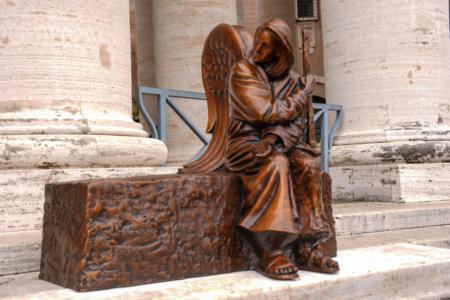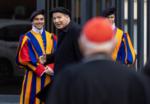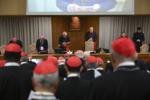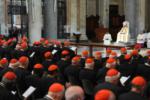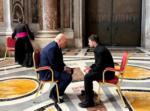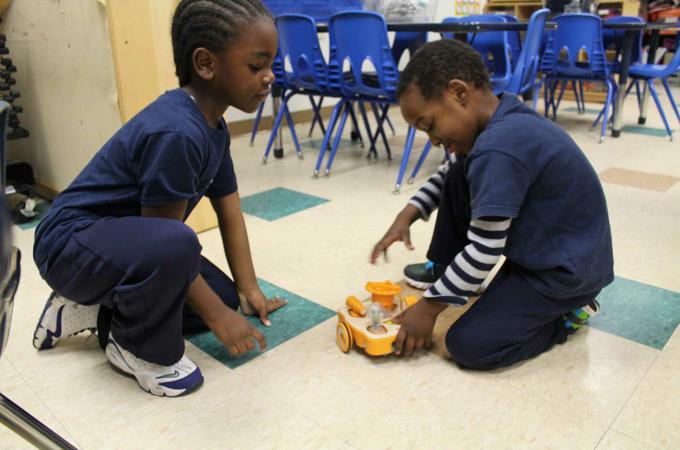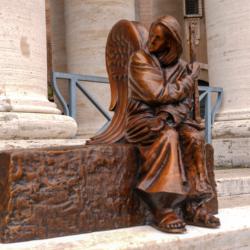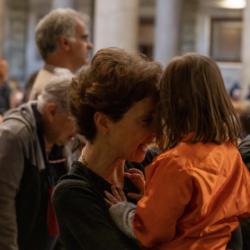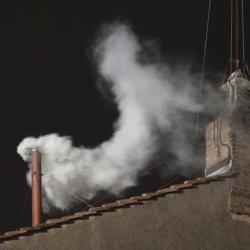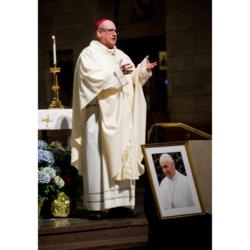Giving our youngest Catholic school students a strong foundation
I became a grandmother two years ago, and it is a joy! I highly recommend it! When my grandsons recently visited, I was reminded of how quickly the time goes and how rapidly our children learn. The acquisition of language, the development of thought processes and the physical skills that progress in two years are impressive. Our children are bundles of energy and happiness as they explore and learn how to navigate the world.
Early childhood education is very much a part of our Catholic schools. Most of our schools have programs for children who are three and four, while some take older two year olds. A few of our schools are even looking at infant care as part of their ministry, because they know that families are always looking for safe places where their children will be nurtured and loved while their parents are working.
So what happens in our early childhood programs? Children in these programs are encouraged to develop all of their skills and the best way to do that is to let them play. These young children play to develop language skills and they play to develop balance and hand and eye coordination. They also play to learn how to interact with each other and to learn how to compromise. These are lifelong skills and we know that as our students develop these skills, that they will use these abilities forever. Therefore, we spend a lot of time in these areas, making sure that they receive the time they need to build a solid foundation in these skills.
A new focus of early learning is science. Not only do our students learn about plants and food, they also learn about physics and technology. The STREAM (Science, Technology, Religion, Engineering, Arts and Mathematics) initiative has become part of our early learning classrooms. We have at least 20 percent of our Kindergarten classrooms where the students program robots to do simple tasks. These children are learning logical thinking and the basics of coding. They are engaged in complex tasks on a level that has meaning for them and we will hope to expand this effort in the future.
In 52 early childhood classrooms our students are utilizing a math program called "Math Shelf." This interactive program based on the work of Maria Montessori, provides opportunities for students learn the basics of number sense. They learn about one-to-one correspondence, what it means to add one or to take one away and other fundamental math skills. According to teachers, our students love this program and our students are learning. We also know that in the first three months of the program that our students engaged in math activities more than 40,000 times! We are confident that this program will make a big difference for our students over their lifetimes. Research indicates that Kindergarten students who understand some basics of math, such as one-to-one correspondence are more likely to do well in their future math studies and we believe that we are working to insure a stronger understanding of mathematics for our students.
The arts are alive and well in our early childhood classrooms! Students sing, role play, draw and paint on a very regular basis. In every early childhood classroom that I have visited, students are ready to sing for me and with me! They sing about math, about letters and about Jesus. They draw and paint pictures and create 3-D sculptures. In some of our early childhood classrooms our youngest students are creating items on 3-D printers. They are creatively solving problems and designing their futures. They are seeing the beauty in the world that God has created and they are making their own art to show that beauty.
Most importantly, the mission of the Church is alive and well in these classrooms. When Cardinal Seán visited St. John's in Wellesley this Lent, the early childhood students provided him with pictures they had created of both the crucifixion and the resurrection. These three and four year old students told the cardinal about Lent and Easter! They knew that Jesus died on the cross for our sins and that he rose again on Easter Sunday. At a very early age, they articulated the basics of our faith.
At St. Patrick's School in Roxbury, the same is true. During a recent visit, the three year old students sang about Jesus and his love for all of us. The children were joyful in their faith and their desire to tell the adults visiting about Jesus was some of the best evangelization I have seen! Their love of God was evident and their belief in God was strong.
Early childhood education is important to families and to the Church. Providing a safe, loving place for children to grow in their faith and in their academic abilities is basic to our Church's mission of evangelization. I am excited for my own grandchildren to have these types of opportunities and am grateful for the parents who put their trust in us. We are blessed and thankful to be able to serve these children and their families.
- Kathy Mears is Superintendent of Catholic Schools in the Archdiocese of Boston.
